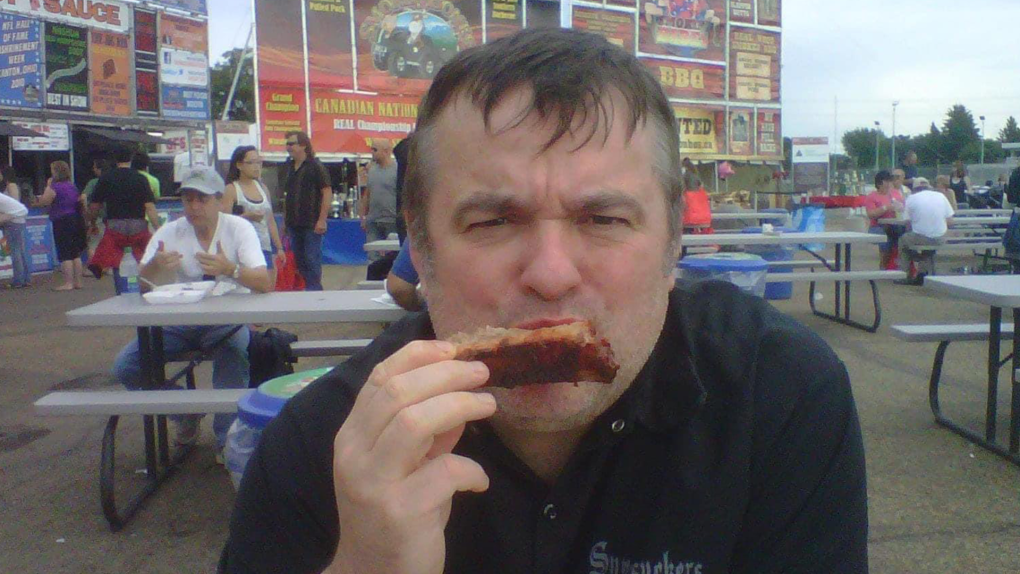Alberta looks at changes to medically assisted death, some question why
The Government of Alberta is exploring the idea of introducing limitations and provincial oversight to medical assistance in dying.
In November, the province launched a survey to gather public feedback on medical assistance in dying (MAID) laws and if the current safeguards are enough.
MAID was legalized in Canada in 2016. Since then, 4,457 Albertans have died with medical assistance.
That number has been increasing, with more than four times as many people choosing MAID in 2023 compared to 2017.
While some argue the program needs more restrictions and oversights, others say it's working well for the people who need it.
One of those people was Willy Grant's husband Glenn.
Her and Glenn's life changed abruptly almost three years ago when he started to struggle with speech one day.
What was first misdiagnosed as a stroke the pair later learned was bulbar onset ALS, a degenerative nervous system disease.
"It impacts your speech, your ability to swallow first, your ability to breathe," Willy said. "It became very apparent at the beginning that it was going to impact his speech and his arms at first, and it was quite a rapid decline."
Glenn was a positive guy and he wasted no time, Willy said. He signed up for drug trials to help with research, and he ate his way through a bucket list of restaurants before he lost the ability to eat.
 Glenn Grant loved good food. When he was diagnosed with ALS, his wife Willy Grant said he spent as much time as possible enjoying local restaurants while he still could. (Photo: Willy Grant)
Glenn Grant loved good food. When he was diagnosed with ALS, his wife Willy Grant said he spent as much time as possible enjoying local restaurants while he still could. (Photo: Willy Grant)
But, over time, he could do less and less. His speech deteriorated and he lost the ability to speak, then he lost use of his arms and then his legs.
In November he was hospitalized twice.
"He was talking to the doctor and said, 'Is this my new baseline? Is this as good as it gets?' And the doctor said, unfortunately, he thought so.
"And so Glenn just turned to me and said, 'It's time to go.'"
Oversight
Applying for MAID was simple and fast, Willy said. Glenn filled out the application, he was reviewed by two independent doctors and he chose the day he wanted to die.
All in all, she said, it took four days.
Alberta Justice Minister Mickey Amery, who is leading Alberta's review of MAID, said he doesn't want to see MAID claims taking longer than needed but he does want more oversight.
"I think that having a second body of oversight over and above what is happening with medical doctors and the decisions that they're making is a positive thing for Albertans," Amery said.
Helen Long, CEO of Dying with Dignity Canada, believes the current federal system is working and that current safeguards are enough.
There is always room for improvements, she added, but only if they're needed.
"Are we looking at change for improvements sake, or are we looking at change and creating potential barriers?" she said. "These are people who are suffering intolerably, who have a grievous and irremediable condition, who are thinking about their end of life.
"We don't want to put in any more barriers or make the process any harder than it has to be for them, while still maintaining all of the many very adequate safeguards that are in place."
 Glenn Grant can be seen in the hospital with his dog. His wife Willy Grant said says he made the decision to apply for MAID after two hospitalizations in November, 2024. (Photo: Willy Grant)
Glenn Grant can be seen in the hospital with his dog. His wife Willy Grant said says he made the decision to apply for MAID after two hospitalizations in November, 2024. (Photo: Willy Grant)
In Alberta's public survey, questions include whether or not family members should be able to challenge a MAID approval and fight a loved one's decision to die.
Amery points to court cases in other provinces where families are challenging MAID decisions, saying a provincial oversight body would be the "quickest way to handle these concerns."
Long argues those concerns are no ones' except the patient's.
"This is about people having the ability to use their own free will and make a choice assuming they meet the eligibility criteria," she said. "There is not a role for anyone else to play in this, and I understand that that can be difficult for people to hear."
In addition to the public survey, the province will be consulting with stakeholders like medical associations, advocacy groups, public and regulatory bodies, and religious organizations.
Inclusion Alberta, an organization that works with people with intellectual disabilities, supports the province's plan.
CEO Trish Bowman said she would like to see a mechanism to review MAID decisions before it is administered, including the ability to review private health records.
She would also like to see more restrictions on who can access MAID, specifically regarding the current eligibility for people whose death is "not reasonably foreseeable."
"We think it reinforces certainly discriminatory and ableist beliefs about the value of the lives of people with disabilities," Bowman said. "(That) living with a disability can, in fact, be a fate worse than death, which we don't believe to be true."
Willy said Glenn died a day after the province announced its review, and that it was something that concerned them both greatly.
"You are watching someone die right in front of you a little bit every single day, and there's nothing you can do about it, except try to have things in place to help them along the way," she said.
"I don't quite understand why our provincial government feels the need to step in and make changes," she added. "Politics does not belong in this kind of health care."
Albertans will have until Dec. 20 to complete the survey.
With files from CTV News Edmonton Chelan Skulski
CTVNews.ca Top Stories

Landslide closes B.C.'s Sea to Sky Highway; reception centre opened for stranded travellers
A landslide shut down the Sea to Sky Highway in both directions near Lions Bay Saturday morning, and authorities expected the road to remain closed for at least the rest of the day.
Montreal man died of aneurysm after waiting 6 hours in ER
A 39-year-old Montreal man died of an aneurysm after spending six hours in an emergency room before giving up and going home.
Canada Post union negotiator balks at labour minister's calling for a 'time-out'
This week, Labour Minister Steven MacKinnon announced a 'time-out' in the ongoing Canada Post strike. In a way, Canadian Union of Postal Workers (CUPW) negotiator Jim Gallant says he agrees with that phrasing.
'We called a Code Silver': LHSC goes into lockdown after shooting outside emergency department
The emergency department (ED) doors at LHSC Victoria Campus were being repaired Saturday morning after a person fired a gun into the glass.
ABC agrees to give US$15 million to Donald Trump's presidential library to settle defamation lawsuit
ABC News has agreed to pay US$15 million toward Donald Trump’s U.S. presidential library to settle a lawsuit over an inaccurate on-air assertion that the president-elect had been found civilly liable for rape.
YouTube singer arrested in Iran after performing an online concert while not wearing a hijab
Iranian authorities have arrested a female singer who performed a virtual concert on YouTube, a lawyer said.
British departure means uncertain future for Alberta's massive Suffield military base
A sprawling military training base more than twice the size of New York City in southeastern Alberta appears to be a shadow of its former self while its future use remains up in the air.
Enbridge pipeline spills 70,000 gallons of oil in Wisconsin
Roughly 70000 gallons (264,978 litres) of oil from a pipeline spilled into the ground in Wisconsin, officials said.
Woman accusing Jay-Z and Sean 'Diddy' Combs of sexual assault acknowledges inconsistencies
A woman accusing rappers Jay-Z and Sean “Diddy” Combs of sexually assaulting her when she was 13 has acknowledged certain inconsistencies in her story.






























